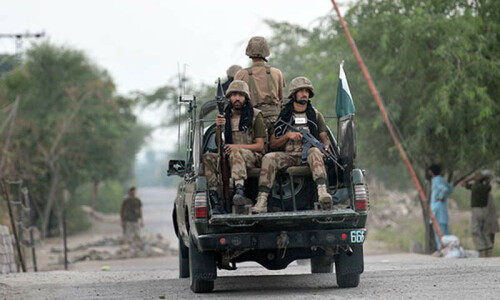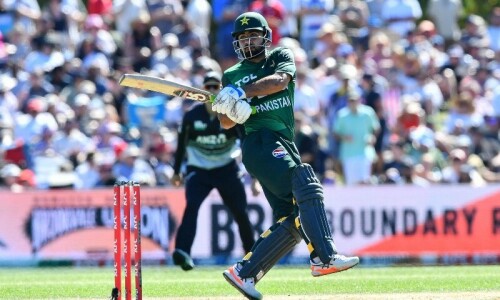HILLARY Clinton must be listened to. Not because she could be in the White House but — let there be no mistake about it — she is one of the few American politicians who understand Pakistan. She was secretary of state during some of the most crucial years in Pakistan’s relationship with America (Abbottabad, Raymond Davis, Salala), and showed remarkable understanding while enjoying it when someone likened her attitude towards Pakistan to that of a fastidious mother-in-law. What she said in an interview with an Indian television channel wasn’t wide off the mark: that Islamabad’s “strategic depth” notion had been proved wrong and didn’t serve Pakistan’s interests. Her remarks centred round the security establishment’s duplicitous policy toward religious militancy. Ms Clinton thought successive Pakistani governments had patronised militant groups in the mistaken belief that these could serve Islamabad’s interests and provide “strategic depth” to Pakistan vis-à-vis Afghanistan and India, and she was extremely critical of Pakistan’s use of proxies. Her comments serve to epitomise the world’s view of the militants who, it so turned out, have hurt no country more than they have Pakistan and its people. The Soviet invasion of Afghanistan in 1979 turned out to be a trauma as much for that country as for Pakistan. Helping the resistance to the Soviet occupation was one thing; turning Pakistan into a centre for the recruitment and training of the US-backed mujahideen was an act of supreme folly that has shaken this country’s state structure and social fabric to the roots. Encouraged by Washington, Pakistan’s army-led governments not only gave a religious tinge to anti-Soviet resistance fighters, the army’s rank and file, too, came to acquire a jihadist mindset that regarded the CIA-funded mujahideen as comrades. No wonder, then, that when the security establishment tried to disown them, the once-mujahideen turned terrorists.
Today, Pakistan’s political and military leaderships have to make a statement of intent that must repudiate the follies of the past and focus on eliminating the curse of terrorism. Prime Minister Nawaz Sharif’s statement in parliament pledging a war to the finish against the militants and army chief Gen Raheel Sharif’s remarks that the nation had rejected the terrorist ideology should not merely mean a reiteration of the philosophy behind the ongoing Operation Zarb-i-Azb; the two statements, we hope, reflect a resolve to not nurture religious militancy and the jihadist mindset again for a counterproductive concept such as strategic depth.
Published in Dawn, June 24th, 2014












































